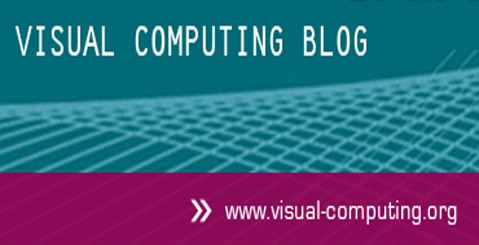Collaborative Research Center
SFB-TRR 161
Quantitative Methods for Visual Computing
We are living in a data society in which data is generated at amazing speed; individuals, companies, organizations, and governments are on the brink of being drawn into a massive deluge of data. The great challenge is to extract the relevant information from vast amounts of data and communicate it effectively.
Typical scenarios include decision and policy making for urban and environmental planning or understanding relationships and dependencies in complex networks, e.g., social networks or networks from the field of bioinformatics. These scenarios are not only of interest to specialized experts; in fact, there is a trend toward including the broad public, which requires the information to be presented in a reliable, faithful, and easy-to-understand fashion.
Visual computing can play a key role in extracting and presenting the relevant information.
In visual computing research the aspect of quantification is often neglected. The SFB-TRR 161 seeks to close this gap.
The long-term goal is to strengthen the research field by establishing the paradigm of quantitative science in visual computing.
News
January 2026
Open Position: HCI Researcher at the University of Konstanz
Opportunity to research future interaction paradigms for Mixed Reality in Visual Computing.
» more »
DFG Grant for Mohsen Jenadeleh
New project focuses on methods that detect subtle quality differences in highly compressed images.
» more »
December 2025
Airbus-Forschungspreis "Claude Dornier" for Sabrina Jaeger-Honz
Postdoctoral researcher in Project D04 wins award for her dissertation.
» more »
SFB-TRR 161 Events
Mar 12th - 13st, 2026
University of Konstanz, Room ZT 1204 (Data Theatre)
Hackathon DR4ET
Organized by:
Patrick Paetzold, Michael Stroh, Ying Zhang
Proposal Submission:
Given the success of past Hackathons, we encourage you to submit a proposal to recruit talented individuals for your project at this year’s event. Please email your PDF to Ying Zhang.
Proposal Deadline: Dec 1st, 2025.
Once we've collected all the proposals and given the authors their feedback, you'll be asked to vote on a topic to get involved.
Location:
University of Konstanz, Room ZT 1204 (Data Theatre)
Apr 23rd, 2026, 9 am - 4 pm
Visualization Research Center, University of Stuttgart
Angebot zum Girls'Day 2026
Creative Coding: Von Musikvisualisierung bis Virtual Reality
Beim Girls'Day am Visualisierungsinstitut der Universität Stuttgart hast du nicht nur die Gelegenheit, faszinierende digitale Umgebungen und farbenfrohe Visualisierungen zu erkunden — sondern auch, sie selbst zu programmieren und nach deinen eigenen Vorstellungen zu gestalten! Tauche mit uns ein in die Welt der Visualisierungsforschung und entdecke, wie kreativ Informatik sein kann.
Mehr zum Anbebot und zur Anmeldung
Jun 16th - 17th, 2026, full days
Internal Status Seminar of the SFB-TRR 161
Further Information & Resources
YouTube
The SFB-TRR 161 produces videos to give insights into the projects and the ongoing research. Please visit our YouTube Channel.
Graduate School

PhD students of the projects at the Universities of Stuttgart and Konstanz learn and do research together on their way to their doctoral degree in visual computing.
Visual Computing Blog

The scientists of the SFB-TRR 161 as well as guest authors blog about their activities in computer graphics, visualization, computer vision, augmented reality, human-computer interaction, and psychology.
Partners of the SFB-TRR 161
FOR SCIENTISTS
Projects
People
Publications
Graduate School
Equal Opportunity
FOR PUPILS
PRESS AND MEDIA
© SFB-TRR 161 | Quantitative Methods for Visual Computing | 2019.





















